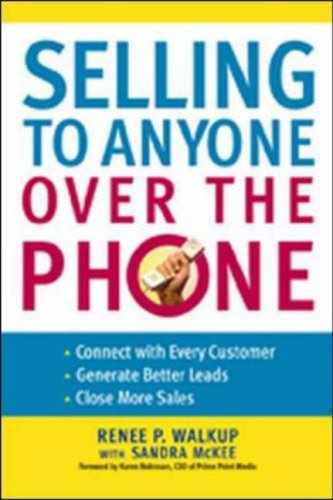Your Record Keeping
Paper methods can include index cards, call report forms, or paper files.
Advantages
When you actually hold a pen or pencil and write down customer information such as interests, needs, and more, you retain the information for a longer term. Each time you process any type of data, your long-term memory kicks in, where it is easy to call back up.
You might enjoy having hands-on control of keeping track of customers.
If you are a visual person, you can use a color system of files or index cards for cataloging—past customers are pink, current large customers are green, and so forth.
You can keep private any specific information that might not be appropriate for a company database. If a customer is a collector of baseball cards or refinishes furniture, you can keep this information. Specific quotes from customers or personal notes of yours about the personality or customer preferences become your private property, not to be seen by all company employees.
Disadvantages
Individual pieces get lost.
Paper/cards must be filed.
Files, storage take up space.
Information may not be easily transferable to someone else who might need it (sales manager, another rep, customer service).
Management of hard-copy information can be time consuming—collate, file, alphabetize.
Paper records are heavy and bulky, especially where there are many customers.
Too much room exists for multiple errors (such as not being able to read handwriting, misplacing information, running out of space on a note card, etc.).
Electronic methods can include software, personal digital assistants, and computers.
Many companies have their own database system that programmers adapt from existing software or create specifically for their own company’s use. Others use off-the-shelf products. An electronic management system can be as minimal or robust as you prefer. Since there is such a broad range of prices and applications, you should be aware of what you actually need. An interior designer who has a small business and must track fifty to one hundred clients might not want to pay $350 for a robust system when a $100 system might hold and track as much information as he or she needs.
Sometimes, though, less expensive software simply cannot handle the load. (Customer contact manager software such as ACT!, Gold-mine, Telemagic, and Salesforce.com are examples.) A recent search on Yahoo yielded thirty-five listings of Customer Relationship Management (CRM) software. Many of these programs can be put onto company networks, so your information technology manager might need to be involved in your consideration of which to choose. You can also find software that is compatible with personal digital assistants (PDAs). Whatever you choose, you need to ensure that your program is compatible with your hardware and software systems.
Advantages
Established software systems for contact management have been around long enough for you to expect reliability.
Portable devices are easy to use and to connect with desktop systems.
Information is easily duplicated and backed up.
You can keep records for a long time as a tracking and purchasing history.
Many are affordable for individual use.
Databases allow you to use many different identifiers to locate customers. For example, you might remember that a customer likes Californian wines and that you met the person at a telecom conference, but you can’t remember the person’s name. With a robust database, you’ll be able to find that individual effortlessly.
Data can be backed up regularly and easily to reduce the risk of lost information.
Disadvantages
You may not have remote access to your database.
Desired software packages might be cost-prohibitive.
Information technology department might not allow software to be added to network.
The software fields might be too restrictive. For example, you could find it useful to keep personality type recorded, yet the software won’t allow added or edited fields.
You might not have the staff or time to convert data—transcription, scanning, etc.
You could lose your PDA or handheld computer.
A virus in your desktop computer or on your company’s network could cause you to lose everything.
Whatever contact manager software you choose, be sure it is flexible enough to allow you to create your own fields. One example might be “I.D.” In this field, you could record how you know a customer. Maybe you met this person at a conference, professional association meeting, school alumni party, or even at the gym or in a class/ seminar. This is also an ideal location to include a referral name so that when you call the customer, you can use the referral name. Sometimes, as part of planning, you will contact everyone you met through a specific association or at a certain seminar. You can customize a phone or mail campaign based on an approach relevant to those people in a particular organization.
You can also sort by fields to plan. In other words, you might decide that you want to plan your day by contacting customers in a particular time zone. Using your contact manager, you can call up people in those areas. It is important to have a consistent system for tracking what time you are to call, either their time or yours.
The way you are going to capture information isn’t as important as the habit that you have created of gathering information and recording it. Being consistent with your record keeping is a valuable shortcut to your planning and follow-up.
